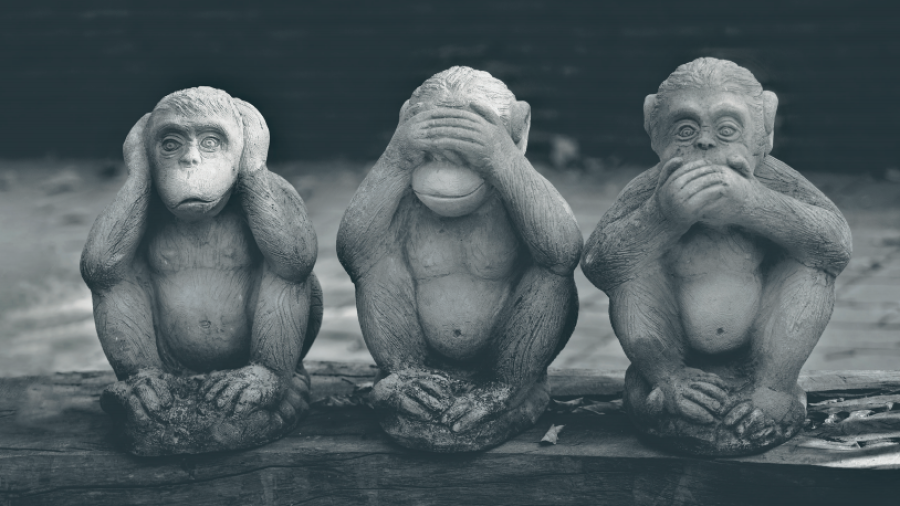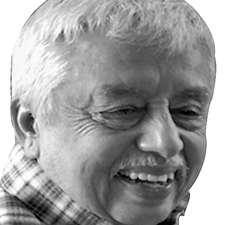Columns
UML's unity mantra
The Nepal camp has unequivocally supported Oli and turned a blind eye to his transgressions.
Naresh Koirala
Since its resurrection by the Supreme Court, the tag 'United' in the Communist Party of Nepal (United Marxist Leninist), CPN-UML, is sounding increasingly absurd. The feud between Prime Minister KP Sharma Oli and Madhav Kumar Nepal factions has intensified. About a month ago, the Nepal faction, along with a majority of Members of Parliament, formally wrote to the president to appoint the parliamentary leader of the Opposition, Sher Bahadur Deuba, as prime minister. Oli countered by recommending to the president to dissolve Parliament, and the President, ever compliant to Oli's wishes, obliged. This blocked Deuba's confirmation by Parliament and facilitated Oli's continuation in office. The Supreme Court is looking at the legitimacy of the president's action while the Nepal faction's anti-Oli campaign continues. There are now two UML committees at the local level across the country—one of Nepal loyalists and another of Oli loyalists. The name-calling and mocking between the party's rival factions continue unabated.
But the party is still 'together'. Sort of. Both the Oli and Nepal factions are fixated on the idea that the UML must remain united to advance 'the communist movement'. The search for a unity formula by the party's leaders, young and old, is ongoing. Is unity likely and what does it mean for the Nepali people at large? But first, what started the fighting?
Beginning of the fight
The accusations the Oli and the Nepal camps have lobbed at each other over the last 18 months outside Parliament, and the voting records of UML members over the last three years of the Oli government provide the answer. The Nepal camp's criticism of Oli outside Parliament has been mostly about his personality traits, not his performance. They call him arrogant, unethical, dictatorial, vindictive and nasty. 'Not a good communist,' they say. However, in Parliament, through the nearly three years of the Oli government, they unequivocally supported him and turned a blind eye to his transgressions. They were compliant when Oli scuttled the Nepal Airlines corruption scandal; when he facilitated the premature lease renewal of Gokarna land to Omni; when he packed constitutional bodies with his lackeys; when he ridiculed corruption allegations against his favourites, Bishnu Poudel, Gokul Baskota, and so on.
They also supported his bill to restrict digital media. They hounded Dr Govinda KC when he was fighting against government corruption, and for quality medical education and health care for all. They have hardly spoken a word critical of Oli's bungling of the Covid crisis. As I am writing, 12 former vice-chancellors of Nepal's universities have issued a joint statement condemning Oli's pressure on the chairman of the Medical Education Commission to illegally grant affiliation to a privately run medical college operated by a friend of Oli. No one from the Nepal camp has spoken against the interference.
The relationship between Oli and Nepal soured when Oli started defying instructions—particularly on matters related to bureaucratic and Cabinet appointments—from the Nepal-Prachanda camp in the erstwhile Nepal Communist Party. In Nepal's politics, it is through these appointments that politicians exercise their influence and make personal financial and political gains.
The unity mantra
The UML, including Nepal camp members, actively supported Oli's crony capitalism and ignored major corruption scandals in his government for the last three years. This is contrary to what is expected of good Marxian communists. For them, to accuse anyone of not being a good communist or to talk of the 'communist movement' is sheer hypocrisy. Any ink spent on it is a waste. But their wish for unity in the UML is real, and that must be addressed.
The stakes of a broken UML are too high for both camps. Most of the senior leaders in the UML are nearly 70 years old; they have little or no education and no employable skills nor the capacity for creative work. They have used the power and privilege of politics and Nepal's lax law enforcement to turn politics into a lucrative money-making vehicle. Being in government enhanced their opportunities for personal enrichment. The fear of the party's split forced Jhala Nath Khanal, one of the senior leaders in the Nepal camp, to release a statement calling for unity before he recently left for medical treatment in India.
It is almost certain that if the party fractures, it will not win a majority in the next Parliament and form the government. It could also spell disaster for the political life of its senior leaders. If they lose in the next election, which they may, they will lose both power and influence, and will have no life left to recover. The younger leaders, the so-called rising stars of the UML, the likes of Yogesh Bhattarai and Ghanashyam Bhusal, have also tasted the power and privileges of the party in office. They are now leading the drumbeat for unity. Everyone is together in the unity mantra sing-along.
Having been pushed to the corner by the Nepal camp's support for Deuba, Oli has made some conditional offers for 'party unity'. One of the conditions is that the Nepal camp withdraws its support to Deuba. If the Nepal camp accepts it, the party may be 'united', yet again, under Oli's leadership. Accepting the offer will not be easy for the Nepal camp, particularly for Madhav Nepal himself. Too much blood has been shed over time. But in a dispute driven by personal ambitions, between leaders with no moral or ethical rectitude and to whom self-respect is a tradable commodity, resolutions are not impossible, provided the disputing parties' self-interests are preserved. Whatever happens, the UML’s quarrel has paralysed the whole country and ordinary Nepalis are paying for it. Its unity mantra does nothing to address the plight of the country. It is yet another case of the Nepali people taken for ransom by their politicians.




 16.12°C Kathmandu
16.12°C Kathmandu















